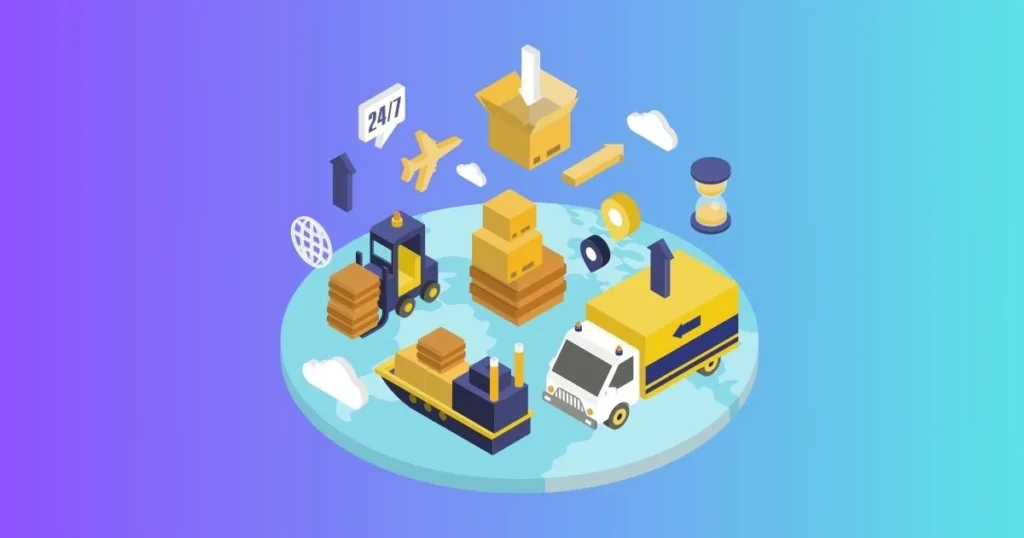As the world becomes increasingly connected, businesses are constantly evolving to meet the demands of a global market. One crucial aspect that has become a top priority for businesses is logistics technology.
With advancements in technology and increased customer expectations, it has become essential for businesses to optimize their supply chain management through the use of advanced logistics techniques and software.

In this article, we will discuss the importance of logistics technology for businesses and focus specifically on two key areas: last mile logistics and cross-docking. We will explore how these techniques can help increase efficiency, reduce costs, and improve customer satisfaction.
The Need for Logistics Technology in Businesses
Logistics technology refers to the use of software, tools, and methods to manage and optimize the flow of goods from point of origin to point of consumption. With the rise of e-commerce and global markets, businesses are facing increased pressure to deliver products faster and at lower costs. This is where logistics technology comes in.
By incorporating logistics technology into their supply chain management, businesses can streamline their operations, reduce errors, and gain greater visibility over their entire supply chain. This leads to increased efficiency, cost savings, and ultimately, improved customer satisfaction.
Last Mile Logistics: Delivering Products to the Customer
Last mile logistics refers to the final stage of product delivery, where goods are transported from a distribution center or warehouse to the end destination – usually the customer’s doorstep. This last leg of the supply chain is crucial as it directly impacts customer satisfaction and can make or break a business’s reputation.
In today’s fast-paced world, customers expect quick and efficient delivery of their purchases. This has put immense pressure on businesses to optimize their last mile logistics operations. This is where logistics technology plays a crucial role.
Through the use of advanced routing software, businesses can plan the most efficient routes for deliveries, taking into account traffic patterns, weather conditions, and other variables. This not only reduces delivery times but also ensures timely deliveries that meet customers’ expectations.
Additionally, with real-time tracking technology, businesses can provide customers with accurate delivery updates and enhance their overall experience. This level of transparency helps build trust with customers and increases the likelihood of repeat business.
Cross-Docking: Streamlining the Supply Chain
Crossdock meaning refers to the process of moving goods directly from inbound transportation to outbound transportation, without the need for long-term storage. In simple terms, cross-docking eliminates the need for warehousing, reducing handling costs and increasing efficiency.
Traditionally, businesses would store goods in a warehouse before shipping them out to customers. This often resulted in additional costs such as storage fees and increased handling time. With cross-docking, goods are transferred from one transportation vehicle to another, reducing the time and costs associated with warehousing.
By utilizing logistics technology such as automated sorting systems and real-time inventory tracking, businesses can efficiently manage their cross-docking operations. This not only saves time and money but also reduces the risk of errors commonly associated with manual processes.
The Benefits of Logistics Technology for Businesses
The use of logistics technology offers numerous benefits for businesses, including increased efficiency, reduced costs, and improved customer satisfaction.
Efficiency
By optimizing processes such as routing and inventory management, logistics technology helps businesses operate more efficiently. This leads to faster delivery times, fewer errors, and greater overall productivity.
Cost Savings
One of the primary benefits of using logistics technology is cost savings. By streamlining operations and reducing the need for warehousing, businesses can save on storage fees, handling costs, and other associated expenses.
Improved Customer Satisfaction
In today’s competitive market, customer satisfaction is crucial for the success of any business. Logistics technology helps businesses meet customer expectations by providing faster delivery times, accurate tracking information, and an overall smoother delivery experience.
The Future of Logistics Technology
As technology continues to advance, the future of logistics technology looks promising. Here are some key developments that we can expect to see in the near future:
Autonomous Vehicles
The use of autonomous vehicles for deliveries is on the rise. With advancements in self-driving technology, businesses can soon expect to see driverless trucks and drones delivering goods, reducing the need for human labor and increasing efficiency.
Predictive Analytics
Predictive analytics uses data to forecast future trends and events. In logistics, this technology can be used to predict customer demand for specific products and optimize inventory management accordingly. This leads to cost savings and improved efficiency.
Blockchain Technology
Blockchain technology has the potential to revolutionize supply chain management. By creating a secure and transparent ledger of transactions, businesses can reduce the risk of fraud and errors in their supply chain operations.
Conclusion
In conclusion, logistics technology plays a crucial role in the success of modern businesses. Through techniques such as last mile logistics and cross-docking, businesses can increase efficiency, reduce costs, and improve customer satisfaction.
As technology continues to advance, we can expect to see even more innovations in logistics that will further enhance supply chain management. Embracing these advancements and incorporating them into their operations is essential for businesses looking to stay competitive in today’s market.
So, it is crucial for businesses to continuously adapt and incorporate logistics technology into their supply chain management practices to remain successful in the fast-paced and ever-changing business landscape.





